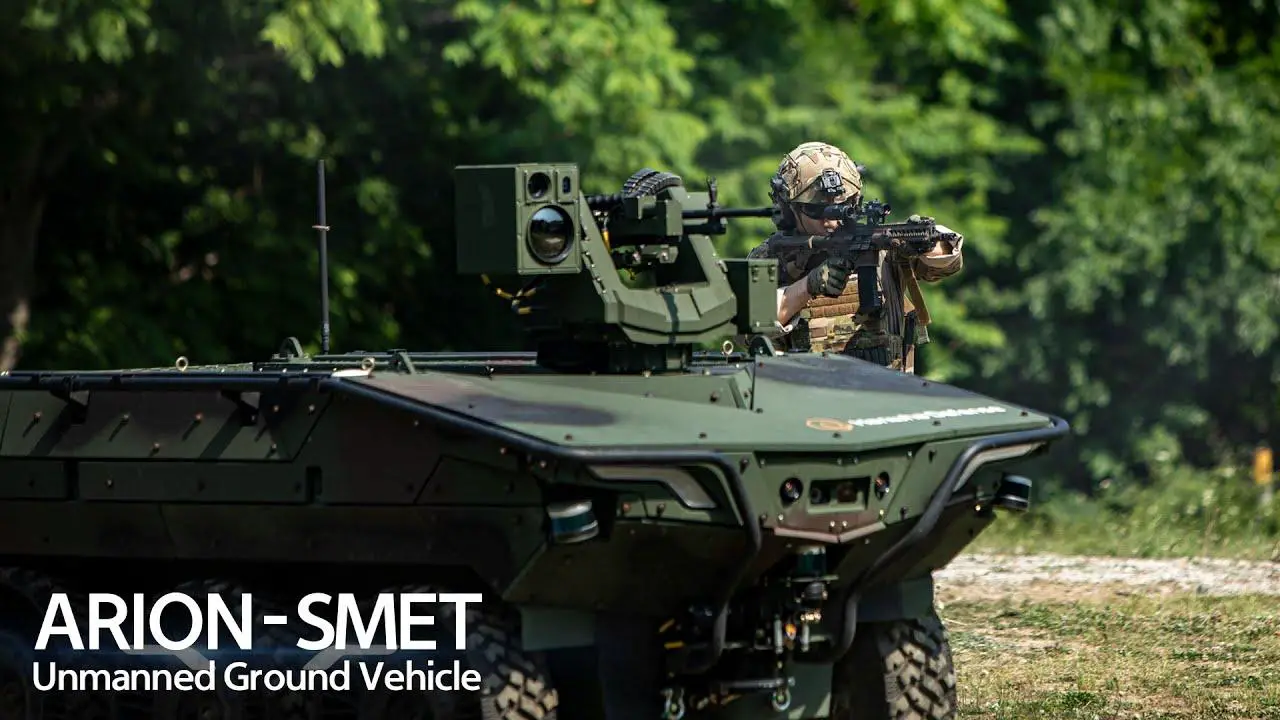Hanwha Aerospace’s self-developed multi-purpose unmanned vehicle Arion-SMET will undergo a performance test at the U.S. Marine Corps training center. The plan is to begin targeting the global military unmanned vehicle market in earnest based on the technology recognized by the U.S. Department of Defense. Hanwha Aerospace announced on the 14th that it recently signed a contract for the Foreign Comparative Performance Test (FCT) project with the U.S. Department of Defense. Accordingly, the main test for the Arion Met will be conducted at the Marine Corps Training Center on O’ahu Island, Hawaii, for three weeks starting in early December this year.
FCT is a project promoted by the U.S. Department of Defense to evaluate the excellent technologies of allied defense companies around the world and link them to development and acquisition projects promoted by the U.S. military. U.S. defense attachés dispatched to each country identify about 300 foreign technologies, and the U.S. military conducts a review, ultimately selecting about 10 of them to proceed with the project. Once the test evaluation is successfully completed, the U.S. Department of Defense decides whether to proceed with the related acquisition project.

This local test will be conducted near the U.S. Marine Corps base in Hawaii, and Arions Met will carry out the mission of transporting fuel, combat rations and drinking water, patients, and repair parts from a designated location to a certain distance. Hanwha Aerospace plans to meet all of the U.S. Marine Corps’ requirements for the world’s best performance, including unmanned vehicle manufacturing technology and field autonomous maneuvering software technology, through this FCT test.
Seo Young-woo, an executive at Hanwha Aerospace, said, “Following last year’s demonstration by the U.S. Forces in Korea, conducting tests on the mainland with the U.S. Marine Corps, which is carrying out the most intensive operations and training, is based on the U.S. military’s trust in the Arion Met and its related technologies. We will do our best to successfully complete this project and lay the foundation for advancing unmanned system technology into the global market.”

Previously, Arion Met was selected as an FCT project by the U.S. Department of Defense in October of last year and began demonstrating equipment for U.S. forces stationed in Korea at Camp Humphreys. Arion Met is the first time that a domestically developed military unmanned vehicle has been selected as an FCT project. The maximum speed (43km/h), range after electric charging (100km), and payload (550kg) are on the same level or higher than global top-tier equipment.
Arion Met can be operated in four ways: remote control, wired following along a line connected to troops, autonomous driving along a set route, and autonomous navigation that searches the terrain on its own and drives to the destination, even on untraveled roads. The remote control shooting system can support close combat by automatically tracking and aiming at targets and firing while maneuvering. In particular, Hanwha Aerospace recently established research centers such as Autonomy HUB and E-Drive HUB at KAIST and Hanyang University to maintain technologies such as off-road autonomous driving at a world-class level.
















